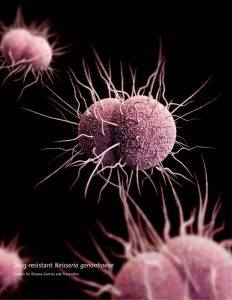NewsDesk @bactiman63
Wyoming state health officials are reporting increases in the sexually transmitted infections (STIs), chlamydia, gonorrhea and syphilis, encouraging prevention strategies and testing for residents.

Comparing 2021 reported cases with those from 2020 shows Wyoming experienced a 23.6 percent increase in chlamydia cases, a 33.5 percent increase in gonorrhea cases and a 35.5 percent increase in syphilis cases.
To date in 2022, statewide, there have been approximately 982 cases of chlamydia, 175 cases of gonorrhea and 35 cases of syphilis reported.
Dr. Alexia Harrist, state health officer and state epidemiologist with WDH, said the increased rates are unfortunate. “If left untreated, these infections can cause long-term pelvic or abdominal pain, an increased risk of getting HIV, infertility, pregnancy complications, stillbirth and infant death,” she said.
Harrist noted overall STI testing was down in 2020 and 2021 compared to previous years, resulting in potentially undiagnosed and untreated STIs in Wyoming.
Harrist said STI prevention strategies include:
- Abstaining from all types of sexual contact
- Getting tested before starting a new sexual relationship
- Before having sexual contact, asking potential sexual partners if they have been tested since their last sexual partner
- Choosing lower risk types of sexual contact
- Consistent and correct condom use with sexual contact
- Limiting the number of sexual partners
- Routine testing for STIs
Leslie Fowler, Communicable Disease Prevention Program manager with WDH, reminded residents that testing for STIs, HIV, and viral hepatitis can be important. “While STIs sometimes make their presence known through symptoms like itching, burning, discharge or visible sores, most people have no symptoms,” she said. “Also, many people are not aware that while these infections often occur in the genitals they can also occur in the throat and rectum so it’s important to ask your provider about extra-genital or three-site testing to identify these infections, as all untreated STIs can have serious health consequences.”
“We always say, the only way to know your STI status, for sure, is to get tested,” Fowler said.
- Dolphin infected with avian influenza in Florida, 1st case in the US
- Mexico reports 137% increase in chickenpox in 2022 to date
- El Salvador Chagas survey: No less than 10% of triatomine bugs are potentially transferable of T. cruzi to humans
- Pakistan reports two more children with polio, Total cases now 17
- Hong Kong investigates 1st monkeypox case
- Malaria vaccine, Mosquirix, awarded prequalification by WHO
- Uganda: Budongo and Bwindi declared free of river blindness
- Brazil dengue deaths top 800, São Paulo accounts for three out of ten deaths


None of the prevention strategies detail the steps the Health Department will take to stop the increases…. Why?